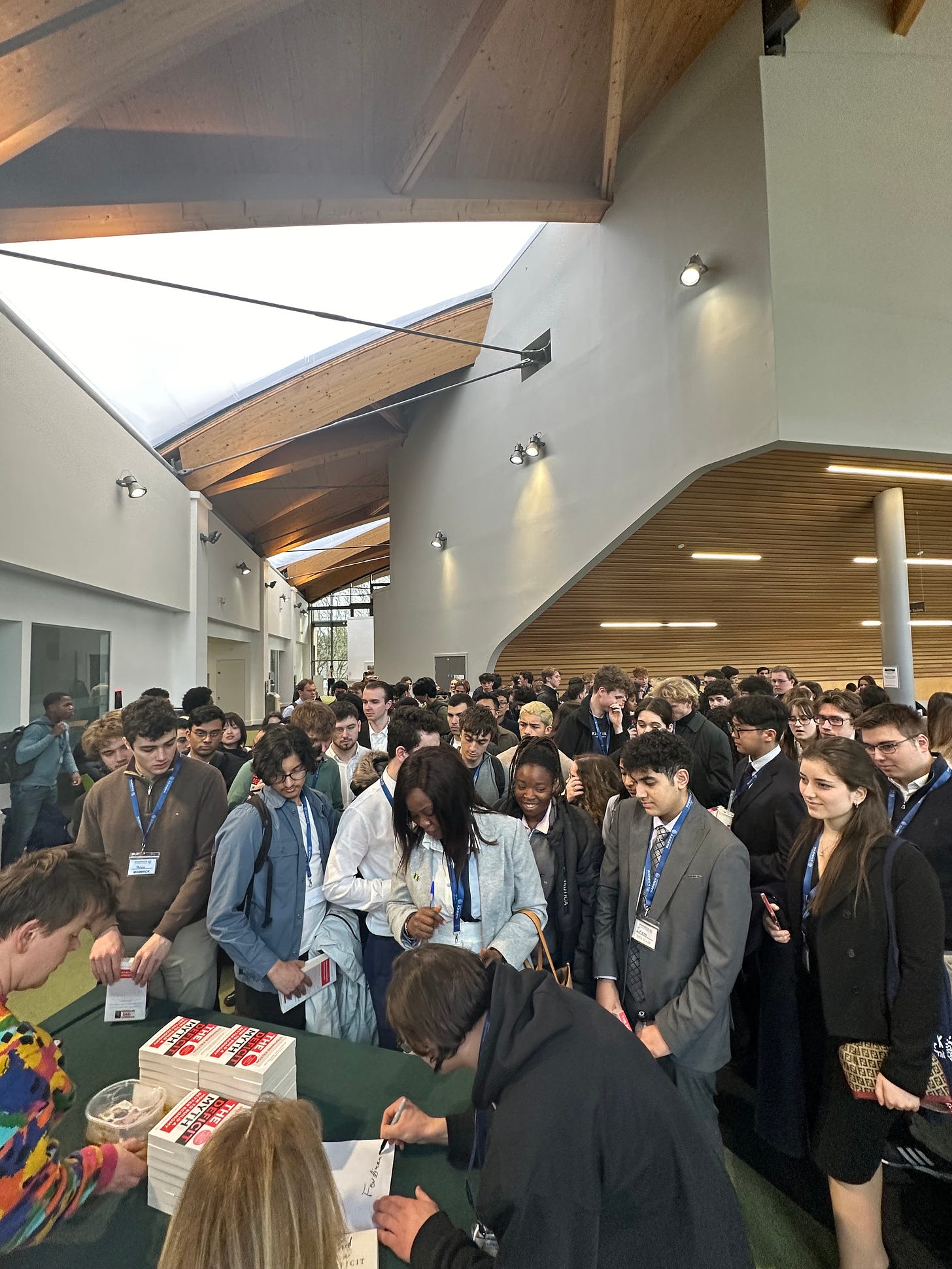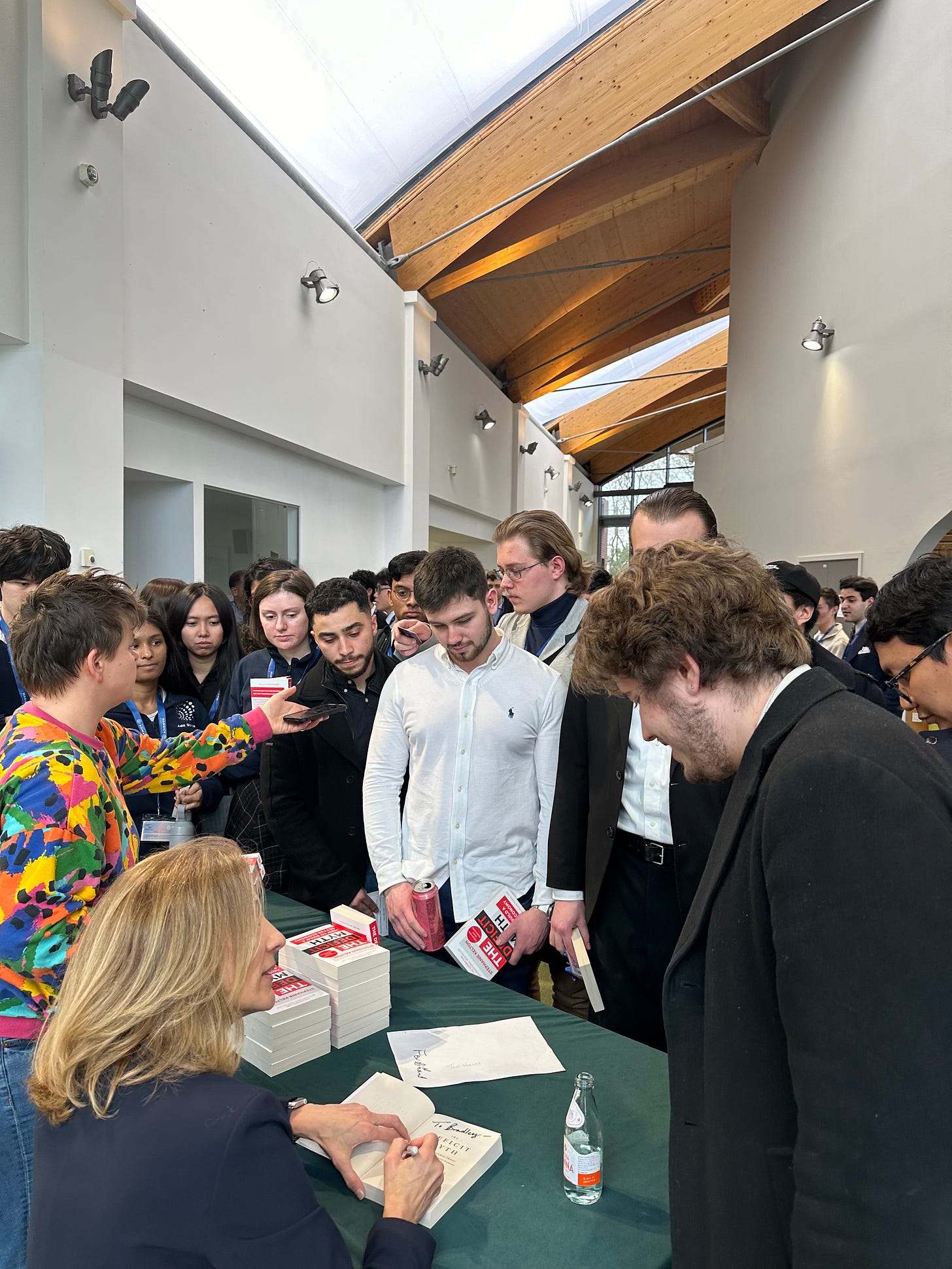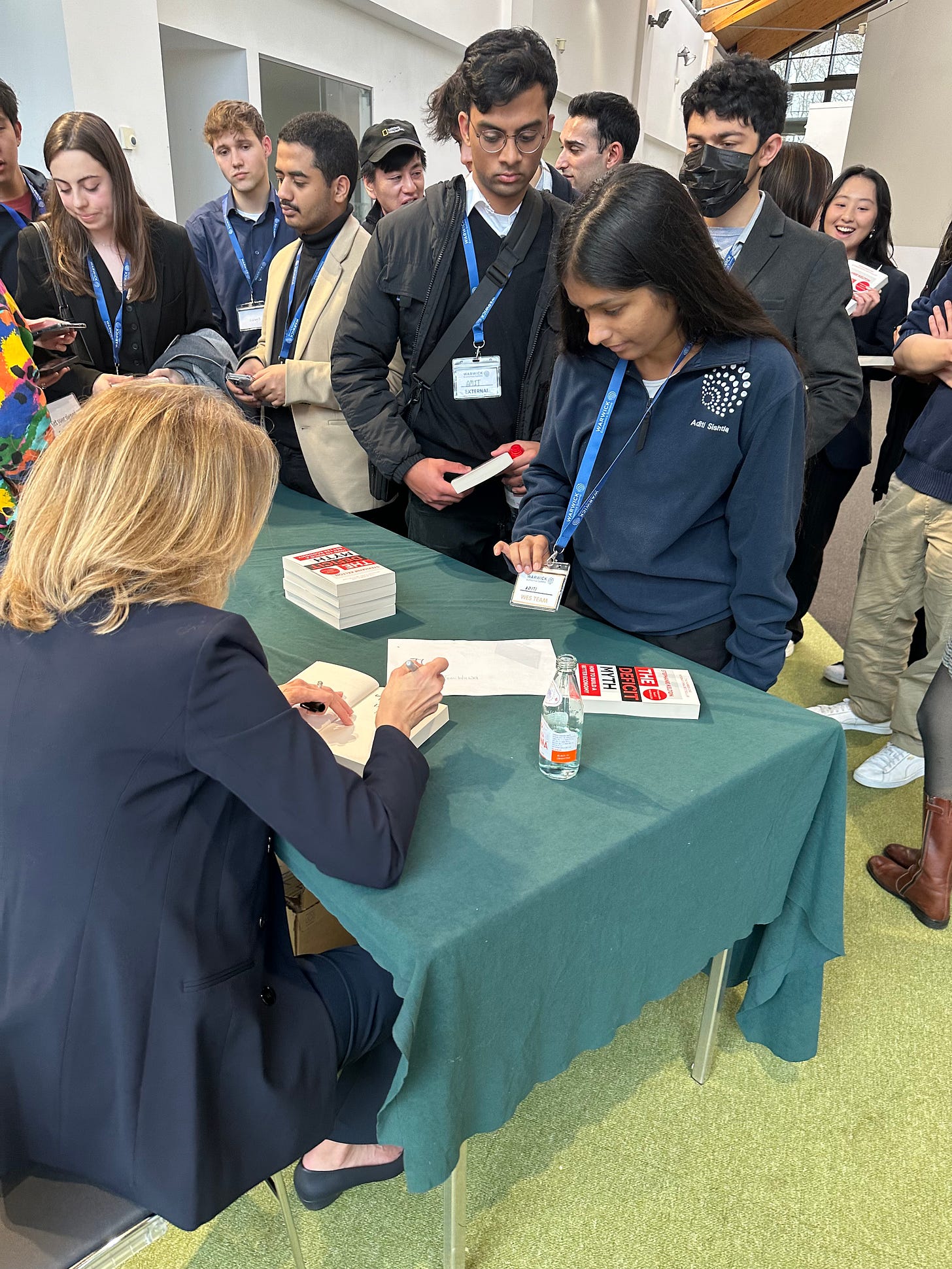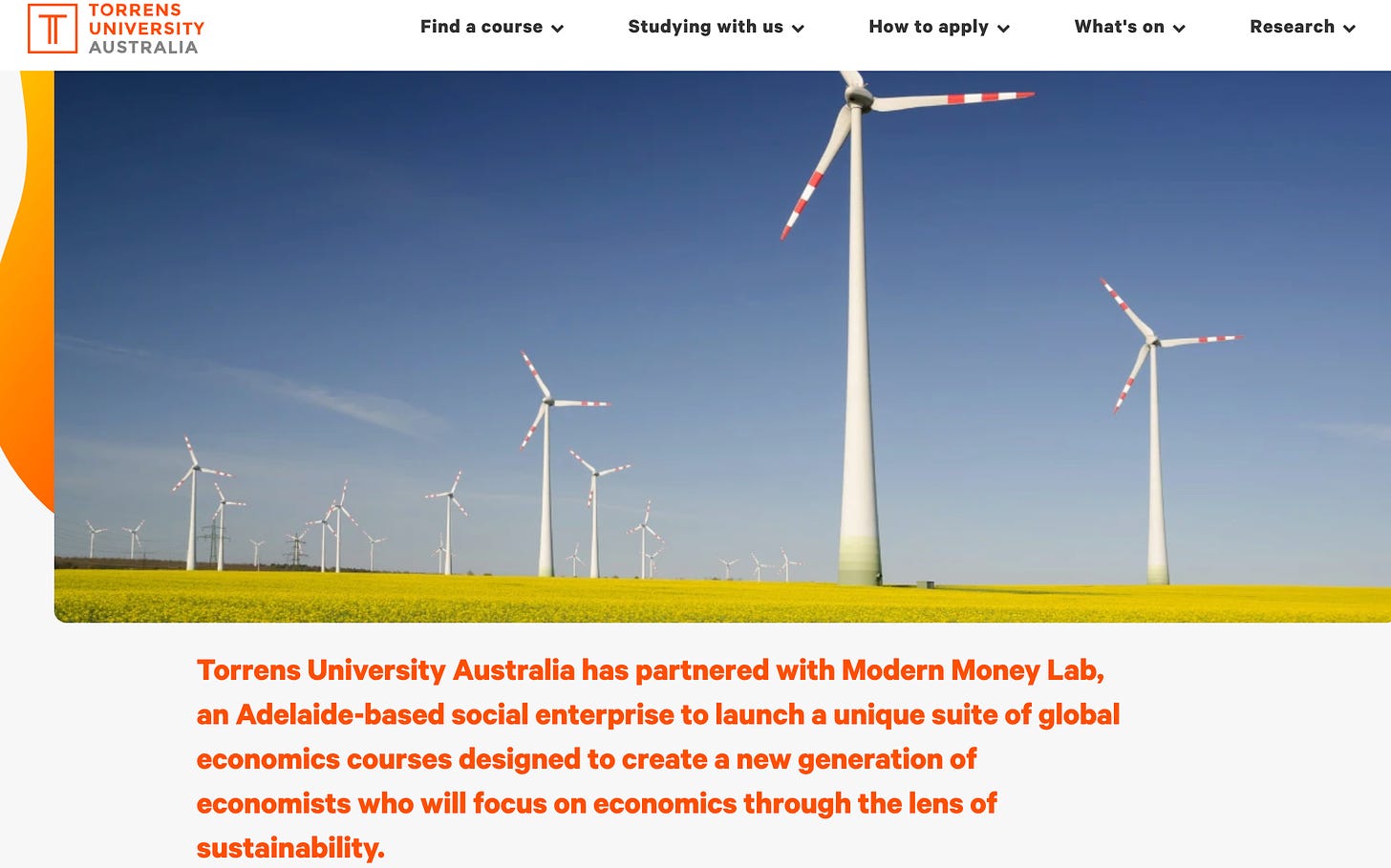Yesterday, I had the pleasure of speaking at the Warwick Economics Summit (WES) in Warwick, England. I decided to accept the invitation after learning that WES is the largest entirely student-run international forum in Europe. Being around large groups of young people—including my own students at Stony Brook University—energizes me more than anything else I do, so I always try to accommodate requests from students.
Almost all of the students were doing an undergraduate degree in economics. A huge number of them told me that they decided to study economics after reading The Deficit Myth, and many of them told me that they had written about being inspired by the book in their college application essays. There is no better feeling!
Here are a few photos from the event.
We started with 100 copies of the book.
It took a long time to get to the end of the line.
After we ran out of books, one of the students started tearing blank sheets of paper from a notebook, which I happily signed.
Many of the students were also inspired by Kate Raworth’s book, Donut Economics, and some them asked me whether there were any graduate programs that integrate MMT and ecological economics. I was happy to be able to point them to Torrens University’s unique suite of online, global postgraduate courses in Modern Monetary Theory and Ecological Economics.
That’s the update from Heathrow Airport. My flight is delayed, so I have some time to work on Part 2 of the MMT Eras Tour.








Let’s face it Stephanie - you’re a rock star! I got to be a fan of yours (and your UMKC colleagues as well) through Naked Capitalism. I just added a subscription to Steve Keen’s Substack and I must say that all of you brilliant academics and experts somehow are able to share your insights and knowledge in an enjoyable and easy to grasp manner. I will look forward to standing in line for a signed book and the opportunity to meet you. Rock on!🤓
Nice work! We need uplifting stories like this to keep us from plunging into the abyss of utter despair. The photo of all those eager young students is just so inspiring. Thanks for doing that.